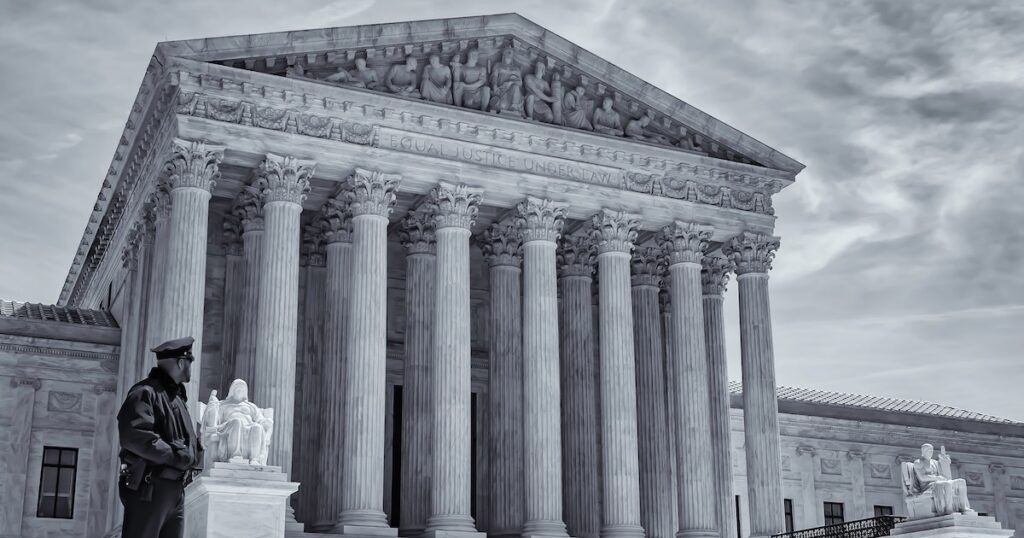On Wednesday’s fraught post-election morning, the Supreme Court, with newly installed Justice Amy Coney Barrett on the bench, heard argument in Fulton v. City of Philadelphia, a case with major implications for children in foster care, for LGBTQ people, and for anyone seeking government services. Right from jump, the Justices focused on the central issue: May an agency with a contract to perform a government service with taxpayer dollars dictate its own contract terms, giving itself special privileges to discriminate based on its religious views?
First, a little background: Catholic Social Services (“CSS”) had a contract with Philadelphia to recruit and license foster families on behalf of the City. In 2018, the City learned that another contractor, Bethany Christian Services, refused to license a same-sex couple seeking to foster. The City reminded all contract agencies of the terms of their city contracts, which include following City law prohibiting sexual orientation discrimination. While Bethany agreed to comply, CSS refused and told the City it would not license same-sex couples. Philadelphia ended CSS’s foster parent licensing contract, but continues to pay CSS $26 million dollars annually to provide other foster care services, such as running group homes. CSS, represented by anti-LGBT law firm The Becket Fund, sued. After losing repeatedly in the lower courts, it appealed to the Supreme Court.
CSS’s arguments were alarming. First, its position that it be allowed to dictate the terms of its contract drew pointed questions from Justices across the political spectrum and for good reason. Government contractors provide a host of services from food assistance to support services for seniors to shelters for youth experiencing homelessness and victims of domestic violence. If each contractor could decide to serve only those who agree with its views, the most vulnerable in our society will face harm. In addition, Counsel supporting the City rightly pointed out the practical nightmare for governments if contractors generally can write their own exemptions, creating “a Balkanization of services.”
Justices Sotomayor and Kagan quickly jumped on another specious CSS argument, that the City lacks a sufficient interest in prohibiting anti-gay discrimination and so must accommodate CSS’s views. In a pointed, high stakes exchange, Justice Sotomayor questioned CSS on whether the accommodation CSS seeks would allow race discrimination against foster parents in the name of religion. CSS told the court no, because race is different and the government’s interest in ending race discrimination is much greater. But hold on! The law has not ranked the government’s interest in civic equality this way before. Past Supreme Court cases have said the government has a “compelling” interest in eradicating discrimination, period.
When pressed on this point, the federal government, supporting CSS in this case, would not provide a yes or no answer to the “compelling interest” question, acknowledging the government’s interest in prohibiting sexual orientation discrimination only as an “abstract” concept. But, obviously, the harm to children and families is all too real.
Lambda Legal is confronting that harm directly in multiple cases in which the Trump administration has explicitly endorsed discrimination by government contractors against families headed by married, same-sex couples seeking to foster children and turned away by religious contractors. One contractor is Catholic, as in Fulton. The other is Evangelical and turns away Jewish and Catholic would-be parents as well as same-sex couples.
Both CSS and the federal government claimed there is no harm to rejected same-sex couples because they can simply “go somewhere else” – officially endorsing taxpayer-funded agencies telling LGBTQ people “we don’t serve your kind.” That’s classic second-class citizenship, and Justice Sotomayor called out the blatant stigmatic harm.
And that doesn’t even acknowledge the stigmatic harm to LGBTQ youth, who represent 20-30% of kids in foster care, from the message that they are “less than.” That is where we focused in our amicus brief representing organizations serving LGBTQ youth across the country. These youth, and all kids in care, are harmed because this discrimination deters wonderful families from stepping up when children can’t safely be with their parents.
Unsurprisingly, Justice Alito was back at it again, renewing his and Justice Thomas’s attempt to undermine Obergefell’s application of constitutional protections to LGBTQ people. Justice Kavanaugh, purporting to be reasonable, echoed his past reference to the decision’s recognition that religious objections to marriage equality may come from “decent and honorable” places. But these references to Obergefell were selective at best. They ignored the decision’s ultimate conclusion – that when sincere objections to others’ equality are enacted into law, it puts the State’s imprimatur “on an exclusion that soon demeans or stigmatizes those whose own liberty is then denied.” It remains to be seen whether this Court recognizes that allowing CSS to exclude same-sex couples from the government service they have contracted to provide does the same thing.

